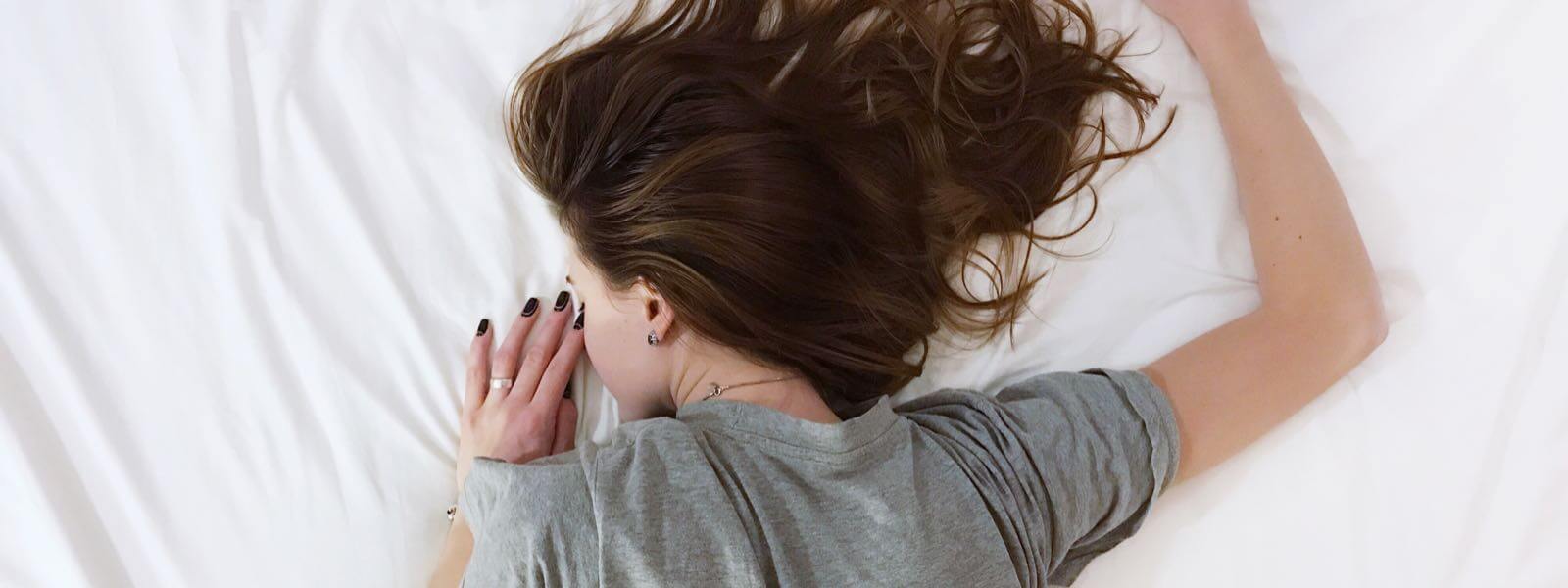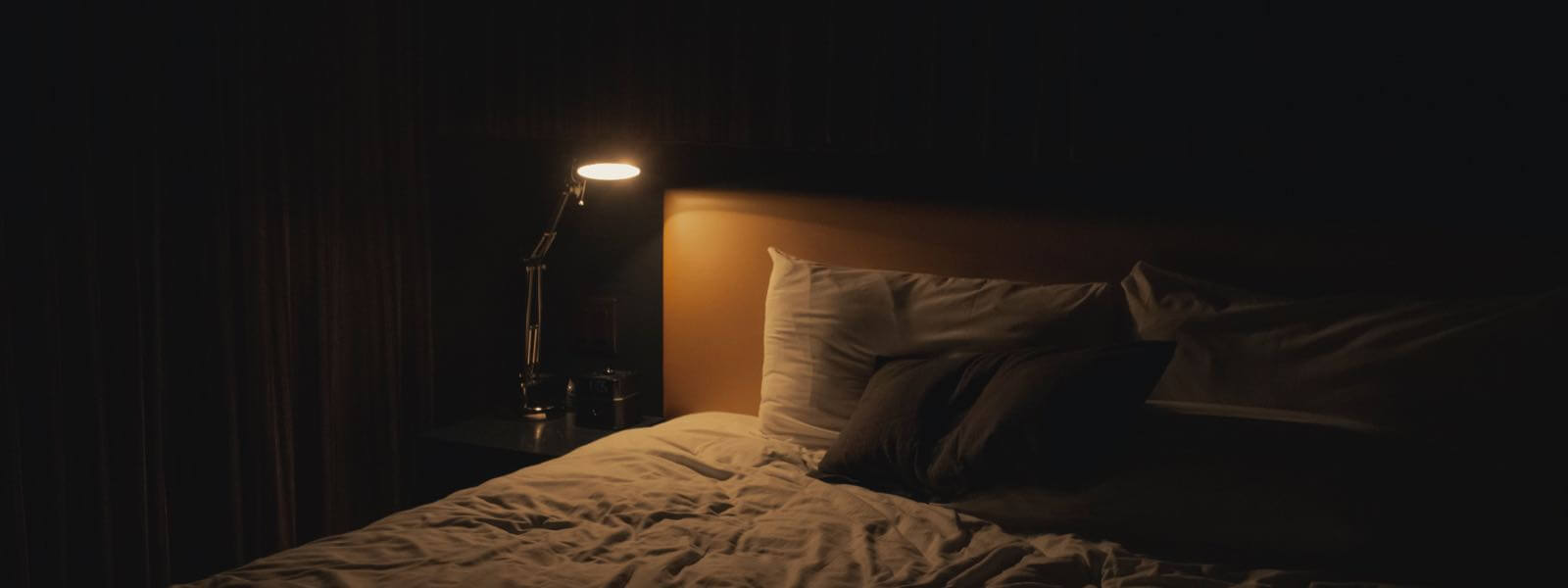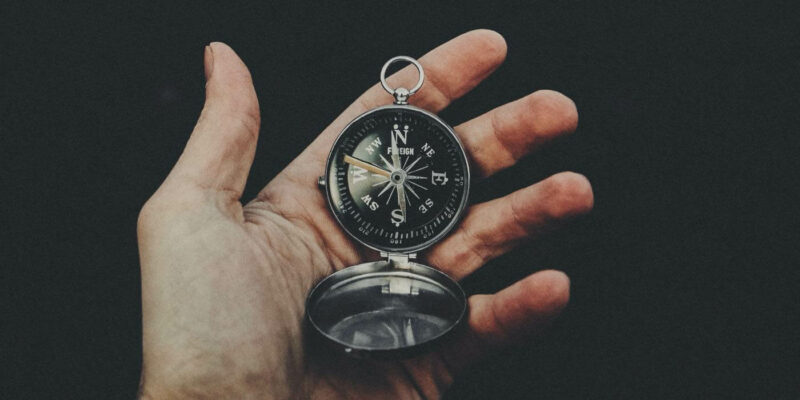I have good sleep habits but I’m still waking up exhausted!
Let me guess: You’ve read all the sleep hygiene articles, turned off all your screens at night, drink plenty of sleepy time tea, but you’re still not sleeping well:
- Maybe you struggle to “shut off your brain” and fall asleep.
- Maybe you wake up frequently thought the night, unable to go back to sleep.
- Or maybe you just feel lousy in the mornings, not rested and lacking energy.
Whatever your sleep difficulties are, reading another list of sleep hygiene tips and tricks is not the solution.
If you suffer from consistently poor sleep, it’s your sleep habits that are the problem.
As a psychologist who specializes in insomnia and sleep problems, I work with my clients to understand the underlying dynamics and habits that are causing sleep problems and how to correct them. And I’m going to teach you to do the same.
In this article, we’re going to walk through the 3 most common habits that lead to insomnia, plus some very specific advice about how to break these bad habits and build better ones.
1. You try to “catch up” on sleep by sleeping in on the weekends

One of the most common mistakes people make with their sleep is sleeping in on the weekends in an attempt to “catch up” on sleep and pay off their “sleep debt.”
Although it seemingly makes sense to try for a few extra hours rest on the weekends or your days off to make up for less sleep during the week, such attempts are both misguided and almost never worth the costs.
Contrary to the pop psychology we hear in media, there’s no scientific evidence that people actually build up any kind of meaningful long-term sleep debt, even after significant losses in normal amounts of sleep.
Consequently, the benefits of sleeping in on Saturday and Sunday morning to catch up for lost sleep during the week are slim to none. But, there are important downsides that go along with sleeping in and trying to play sleep catch-up.
The Downsides of Playing Sleep Catch-Up
Sleeping in the on the weekends has very little long-term benefit and comes with a couple very significant downsides:
1. Social Jet Lag. Regular jet lag occurs when there’s a discrepancy between our body’s biological clock and the actual time of day. If you catch a flight from San Francisco at 4:00 pm and land in Boston at 9:00 pm, the clock on the wall at the hotel room may read 10:00 pm, suggesting it’s time for bed. But your biological clock hasn’t had time to adjust—you still feel as if you’re on San Francisco time, which is 7:00 pm and much too early to fall asleep.
We suffer from Social Jet Lag when our internal biological clock is similarly mismatched compared to actual time but the cause is a bad sleep schedule rather than a plane flight across time zones.
If you stay up 3 hours later than normal Friday and Saturday night and wake up 3 hours later than usual on Saturday and Sunday morning, the Social Jet Lag you’ll experience for the next few days (when you return to your normal schedule) is the same as if you crossed three time zones!
TAKEAWAY: Sleeping in leads to Jet Lag just as much as jets do.
2. Low Sleep Drive. The second problem with playing sleep catchup and sleeping in is that it depletes your Sleep Drive.
Sleep drive is the body’s need for deep, restorative sleep. Being awake and active throughout the day builds it up so that when bedtime rolls around, your body has a strong need for deep sleep—this results in a faster time to fall asleep and deeper, more restful sleep throughout the night.
But when you sleep in you have less time to build up sleep drive over the course of the day, which means you’ll be A) less sleepy at your normal bedtime, and B) more likely to wake up in the middle of the night and have trouble falling back to sleep.
TAKEAWAY: Low sleep drive leads to low sleep quality.
The Solution
The good news is that both of the above problems—Social Jet Lag, and Low Sleep Drive—can be cured by one simple fix: Wake up at the same time every day. Even on weekends, holidays, and vacations. Even if you didn’t sleep well the night before or had a stressful/exhausting day.
When you keep your wake up time consistent, you avoid getting yourself into social jet lag in the first place because your schedule remains constant. You also give yourself plenty of time to build up sleep drive over the course of the day so that you’re sufficiently sleepy when bedtime rolls around.
Unfortunately, while conceptually simple, waking up at the same time every day is often a major challenge for most folks.
Below are the 3 most common obstacles or points of resistance I hear from people trying to adopt a more consistent wake-up schedule and some suggestions on how to think differently or work through them.
- But sleeping in feels so good! True, but does the pleasure that comes from an hour or two of sleeping in each week really outweigh the costs of chronic poor sleep?
- If I get just a little more sleep I’ll feel much better (and perform much better) during the day. The degree to which you feel rested throughout the day and can function at your normal level is almost entirely dependent on how much deep sleep you get, not the overall number of hours you sleep. And almost all of our deep sleep happens in the first 3 hours of sleep. Consequently, the sleep you get from 7:00 am to 8:00 am, while it may feel good, is not going to meaningfully impact how you feel or your performance throughout the day. But it will decrease your sleep drive and make it harder to fall asleep that evening, perpetuating the cycle of poor sleep.
- Weekend mornings in bed are the only time my spouse and I have to be affectionate/intimate/cuddle. If Saturday and Sunday mornings are truly the only time you can find to cuddle and be intimate, maybe it’s time to re-adjust your priorities and make some time for physical and emotional affection with your partner during a couple of the other 100+ hours during the week.
TAKEAWAY: To avoid social jet lag and low sleep drive, wake up at the same time every single day.
2. You get in bed too early

Turning in early before a big day is the flip side of playing sleep catch up. In both cases, by trying to modify your sleep routines in order to get better sleep, you end up creating worse sleep in the long run. When you turn in early before a big day, you more often than not end up laying in bed awake instead of falling asleep.
For example: Tomorrow is the start of a big trial, the outcome of which determines whether you make partner. Or maybe you’re defending your dissertation, pitching your startup to a group of VCs, playing in a championship tennis match, or any other stressful, high-stakes situation.
In the face of a daunting challenge tomorrow, many of us make the mistake of “turning in early” tonight in an attempt to get more sleep and therefore be better rested and able to perform well the following day.
The crucial error in this line of thinking is that the degree to which you feel rested and perform at your peak potential has far less to do with the quantity of sleep and far more to do with the quality of your sleep.
Of course, in a perfect world, we’d get both ample quantity and quality of sleep every night. And while this occasionally happens as a result of a perfect storm of positive factors, it’s foolhardy to think that we can make it happen by simply getting into bed earlier than usual.
Think about it this way:
If you had to choose, would you rather get 6 hours of high-quality sleep or 8 hours of fitful, restless sleep?
When you try to turn in early before a big day, you typically end up doing more harm than good because your body may not be ready to fall asleep. As a result, you lay in bed for a long time not sleeping. This sets you up for two major sleep problems: Sleep Anxiety and Problematic Sleep Conditioning.
1. Sleep Anxiety. You’re laying in bed, lights off, alone, with nothing going on. No external stimuli whatsoever because you’re religious about following your sleep hygiene rules (eye mask on, earplug and white noise machine, blackout drapes, etc.).
In a perfect world, this would help you sleep. Unfortunately, your sleep world isn’t perfect, in part because you got into bed too early without your sleep drive being sufficiently high. As a result, you’re going to lay awake with nothing but your thoughts and no sleepiness. Inevitably, you start thinking about your to-do list for tomorrow, the big presentation you have to give next week at work, that thing you promised your mother you’d take care of, etc…
When you’re in bed but not sleepy, your mind starts working—in this case, thinking, because there’s nothing external to work on. Right away, this thinking increases your overall level of arousal and signals to your body that sleep drive should be suppressed because it’s time to work.
Instead of drifting off into sleep, you find yourself even more awake and alert. This leads to an uncomfortable thought: “What if I can’t sleep? How will things go tomorrow if I’m groggy and “out of it.” I need to fall asleep NOW!”
And so begins sleep worry and anxiety, which takes your already aroused brain to new heights of arousal (the challenge of a to-do list or presentation are mildly arousing but the anxiety of being sleep deprived is majorly arousing).
TAKEAWAY: By worrying about the effects of not sleeping you’re creating a self-fulfilling prophecy that’s keeping you awake. All because you got into bed too early.
2. Problematic Sleep Conditioning. Problematic Sleep Conditioning is when you teach your brain to associate arousing activities with the act of laying down in bed. If every time you lay down in bed you start reviewing your to-do list for tomorrow and worrying about the quality of your sleep, your bed is going to become an unconscious cue for anxious feelings and mental arousal, and by extension, suppressed sleep drive.
In other words, being in bed when you’re not truly sleepy is doubly harmful: In the moment, it creates arousal and sleep anxiety which makes it harder to fall asleep that night. But over time it also established an unconscious association between your bed and arousal, which is the worst thing to have associated with your bed since it turns the act of getting into bed as a signal to wake up!
TAKEAWAY: When you spend time in bed not sleepy, you train your brain to associate the bed with wakefulness.
The Solution
No matter how tired you are, if you’re not sleepy specifically (more on this distinction below), you should not be getting into bed. If you do, chances are you will: A) Start to worry, problem-solve, and generally activate yourself, and B) You will be creating or strengthening all sorts of arousing associations with your bed, all of which interfere with falling asleep.
TAKEAWAY: Don’t get into bed until you are truly sleepy, not just tired.
Why It’s Difficult
- We make the old mistake of believing that quantity rather than quality of sleep is what’s most important. Remember: 6 hours of quality sleep beats 8 hours of crummy sleep every time. If you’re worried about performing well tomorrow, remind yourself that the quality of your sleep is the most important thing to prioritize. If anything, you should try to go to bed slightly later than usual before a big day since this will allow your sleep drive to build up even further, increasing the odds of falling asleep quickly and staying asleep.
- Tired isn’t the same thing as sleepy. Tired is a broad umbrella term for fatigue or exhaustion. Sleepy is the very specific term for when your body is ready to fall asleep. When people cross the finish line of a marathon they’re often quite tired, but I’ve never heard of anyone falling asleep at the finish line. Similarly, after a long day at work with multiple physical, mental, and emotional stressors, you may feel extremely tired, but that fact is often independent of sleepiness. The foolproof way to know when you’re truly sleepy and not just tired is droopy eyelids. During the evenings, try to notice the difference between tiredness and sleepiness, so that you can more effectively refrain from getting into bed too early.
TAKEAWAY: Only get into bet when you are truly sleepy, not just tired.
3. Your “sleep runway” is too short

Many people are frustrated with their poor sleep because they expect that their minds will simply shut off and go to sleep as soon as they decide to get into bed. But the mind doesn’t work that way.
You’ve probably spent all day with your mind being fairly active and energetic so that you can be productive, solve problems, and get things done. Doesn’t it seem a bit unrealistic to think that all of that will instantly shut off and go into sleep mode at the drop of a hat?
Your mind before bed is like a jet before landing: The bigger, more powerful the jet the longer a runway it needs to land and come to a complete stop. In other words, the more mentally active and stimulated you are during the day, the more time you need to gradually slow your mind down in the evening before it’s ready to fall asleep.
If you have the common problem of getting into bed only to have your mind racing with thoughts, worries, to-do list items, and memories, it’s probably because you haven’t given your mind a long enough period of time to transition from alert and aroused to relaxed and sleepy.
The Solution
In order to fall asleep quickly in bed, you need a transition period of relaxation that bridges work and rest. Specifically, your mind needs some time to switch out of problem-solving work mode and into relaxed rest mode. If you want to be able to easily and quickly fall asleep. This dedicated time you give to your mind to unwind and relax is called a sleep runway.
By intentionally creating space and time for relaxation before bedtime, you allow your mind to slowly and organically shift gears into a sleep-promoting state of relaxation. If you’re not doing this already, it may take some deliberate thought and planning on your part. By implementing and sticking with a consistent sleep runway, you’ll also be creating reliable and powerful cues for sleep that will serve as unconscious signals to your mind that it’s time to fall asleep soon. This will make the actual act of falling asleep easier and more effortless.
To create an effective sleep runway, schedule an hour or so before your anticipated bedtime where you do no work at all. And the term work here is used in a broad sense—of course, you shouldn’t be emailing clients or reviewing spreadsheets, but you also should abstain as much as possible from any kind of goal-directed or striving activity. Anything that might signal to your mind, I need to do some mental work.
Reading the news, for example, is a good way to subtly put your mind into work mode. After all, the news is—almost by definition, unfortunately—a long series of problems and crises to which your mind will naturally respond with worry and problem-solving. And when you start worrying or problem-solving, you put your mind in work mode, which is arousing and inhibits your sleep drive and increases sleep anxiety.
Why It’s Difficult
We’re good at working and problem-solving and we do it a lot, so it can actually be a challenge to come up with and implement non-work and non-arousing activities for our sleep runway.
The key to good sleep runway activities is to think of things that hit the sweet spot of being interesting or enjoyable enough to hold your attention but not so exciting that they become arousing.
Reading is typically a good choice and often fiction tends to be better than non-fiction. A good trick is to re-read a favorite novel or story. This tends to hit that sweet spot of interesting and enjoyable but also not arousing since you’ve read it before and there aren’t any surprises.
Other good sleep runway activities include:
- TV Shows. A lot of people report success with nature documentaries like Planet Earth or old favorite sitcoms like Cheers or Seinfeld. And don’t worry about “blue light” impacting your sleep. The science of this is shaky at best, and even when some studies have shown a negative effect of blue light on sleep, the effects are typically quite small—much less influential than, say, worrying and getting anxious about not sleeping because you got into bed without being sleepy.
- Stretching or yoga
- Meditation or formal relaxation practices like Progressive Muscle Relaxation or Diaphragmatic Breathing
- Puzzles or other non-competitive games
- Certain hobbies may have aspects that are non-stimulating and would therefore be appropriate sleep runway activities. For example, sketching ideas for a new watercolor painting or simply listening to music without doing anything else.
TAKEAWAY: To fall asleep quickly and easily, create a sleep runway of an hour or more where you do nothing arousing or goal-oriented.
Putting it all together
If you suffer from consistently poor sleep, implementing standard sleep hygiene tips are not enough to improve things. You must identify and correct the underlying sleep habits that are producing poor sleep in the first place.
Three of the most common yet counter-intuitive sleep habits that end up disturbing our sleep are:
- Sleeping in on weekends and the social jet lag it produces.
- Getting in bed too early and associating wakefulness with your bed.
- Not having a long enough sleep runway.
If you can address these problematic sleep habits, you will find that consistently good sleep is closer than you think.
To drastically improve the quality of your sleep, remember the following:
- Wake up at the same time every single day.
- Don’t get into bed unless you’re sleepy (heavy eyelids), not just tired.
- Maintain a sleep runway of at least an hour before bedtime that includes no work or even goal-directed behavior.





14 Comments
Add YoursLong story. 70 yr(!) old who was born a worrier! Mild depression/anxiety disorder for years. Great psychologist, seeing for years. Good times and bad times. Prozac was great years ago! Great family, 3 kids, one who has a definite mood disorder but seems under comtrol(28 yrs) old. Seen psychotherapist who felt l was meds intolerant. Tried TMS(?-magnetic thing!). Talk to therapist. As you can tell I’m a perfectionist Successful in business but retired(probably a mistake) l could write a book! Bottom line, ampht salts, cymbalta and clonzapam have almost done the trick.
Very sensitive. But very functional 95%
Of time. Worries yes. Not a good candidate for mindfulness! Too hard. But I usually wake up blah, take my meds/vitamins, go to Mass and usually am good to go! Lately low again at times. Genes are definitely depression oriented. But blessed with success, beautiful family, supportive wife and always had good friends(very outgoing). Sleep great but DREAMS every night(weird, but not down). Just want to be HAPPY AND GRATEFUL all the time! There you have it in cliff note style! Frustrating with changes that I can’t seem to under control. But actually feel good expressing this to a stranger in the mental health world. God bless you! JB
Best article I’ve ever read on sleep! Clear explanation of the issue and some very practical tips to help.
Thanks, Ian! Glad it was helpful!
I agree with Ian…very helpful, not just the same old thing. And I was happy to read that you endorse my nightly sleep runway tactic…playing Scrabble on my e-reader! It puts me out every time, though other sleep articles have said not to do it.
Lois, yes! I read a little on my iPhone every night before bed—puts me right to sleep!
It makes me so happy to hear putting a show on might not be so bad – I fall asleep most nights to Bob’s Burgers!
Rock on ?
I have a banana at 9 PM and retire at 11 PM… The consistent wake up time is something I need to follow.
Great post.
Thank you for the interesting information.
Hi,
What do you think about 20m power naps?
I’m a big fan if you can pull it off.
Earlier in the day is better (12:00 or 1:00) and keeping it short is key to not letting it disrupt your sleep in the evening.
But for people who consistently struggle with poor sleep at night, it’s usually a good idea to avoid naps (since they deplete sleep drive) until they’re consistently sleeping well at night.
Ever since a bad stretch of anxiety induced insomnia in 2008, I have gone through seasons of anxiety about sleep anxiety and sleep on and off for 12 years. A bad night can really freak me out. Sometimes I go from being afraid that I’ll get the sleep anxiety and not sleeping to being afraid of actually letting go of control and letting myself relax—almost like I’m scared to sleep, of being vulnerable for all that time and not knowing what’s going on around me. It’s a weird thought when you think about it and i only think about it when I’m in a sleep-worry season (which I am right now). Any advice?
I don’t know if the author will see the comment after few months after publishing, but one more question to this.
You said activities before sleep should not be too arousing, but what about sex. It actually makes many (men) sleepy, doesn’t it? 😉
THANK YOU !